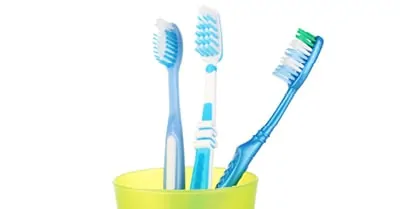
Dental fillings are a great way to keep your natural teeth healthy by closing in and protecting any decay that may have occurred. There are several types of fillings that are made out of different materials. It’s these materials that determine how long your cavity filling should last. And unfortunately, no, it’s not forever.
White Fillings
More commonly becoming the preferred treatment for cavities, white fillings, also known as tooth-colored or composite fillings, are a great way to make your restorations virtually invisible. Your dentist in Asheboro will closely match the filling material to neighboring teeth, making it look like there’s nothing there but a healthy, natural tooth. On the downside, the expected lifespan of tooth-colored fillings is the lowest of all restoration options at about 7-10 years, depending on the location of the filling and your oral health habits. However, it’s still one of the most viable, trusted options for treating cavities.
Silver Fillings
Silver or amalgam fillings are another option for treating a cavity. They do last longer than a tooth-colored one, usually about 10-15 years, but there are some aspects to them that many patients find unattractive. Not only can these restorations cause teeth to look gray, dingy, and discolored, they also usually require more of the undamaged tooth to be removed for application. What’s more, there has been a rise in concern about the mercury levels in amalgam fillings. If you’re worried about the mercury content or have questions about the safety of these fillings, ask our Asheboro dental office. We’ll be happy to help.
Gold Fillings
These fillings aren’t incredibly popular anymore, but they are still in use and a viable option. While cast gold fillings typically last 15 years or more, which is longer than any other filling discussed, the cost for them is typically higher than other options. There’s also the aesthetic concern with the obviousness of the gold color.
If you think you may have a cavity, don’t wait to get it checked out. Any treatment is better than no treatment, and can actually save your tooth. Don’t have a dentist? Give our dental office in Asheboro a call today!
Welcoming patients from Asheboro, Randolph County, Randleman.





 Almost every job requires a bit of face-to-face interaction. And your smile is the first thing others notice about you. Unfortunately, this could inadvertently lead to a misconception of who you are and could affect your career. Everyone at
Almost every job requires a bit of face-to-face interaction. And your smile is the first thing others notice about you. Unfortunately, this could inadvertently lead to a misconception of who you are and could affect your career. Everyone at  This time every year, people begin making resolutions to eat better, lose weight, or quit smoking. These resolutions that pop up every year typically mean well, but the truth is, not even half are kept longer than six months. At
This time every year, people begin making resolutions to eat better, lose weight, or quit smoking. These resolutions that pop up every year typically mean well, but the truth is, not even half are kept longer than six months. At  Everybody is thinking about their New Year’s resolutions – get in shape, read more, take more time with the family – but have you thought about adding your smile to that list? 2016 might be a great year to take better care of your smile: It could improve your health too!
Everybody is thinking about their New Year’s resolutions – get in shape, read more, take more time with the family – but have you thought about adding your smile to that list? 2016 might be a great year to take better care of your smile: It could improve your health too!  You know you need a mouthguard when you play a sport like hockey or football, but when you are sleeping? Really? What in the world is there to protect your teeth from while you are snug in your bed, cushioned everywhere by pillows and blankets?
You know you need a mouthguard when you play a sport like hockey or football, but when you are sleeping? Really? What in the world is there to protect your teeth from while you are snug in your bed, cushioned everywhere by pillows and blankets? Dentures can be an amazing replacement to all or several missing teeth. They can help regain confidence, enhance your lifestyle, and can even restore a more youthful look. But just because they aren’t natural teeth doesn’t mean they don’t need the same level of care. At
Dentures can be an amazing replacement to all or several missing teeth. They can help regain confidence, enhance your lifestyle, and can even restore a more youthful look. But just because they aren’t natural teeth doesn’t mean they don’t need the same level of care. At 




